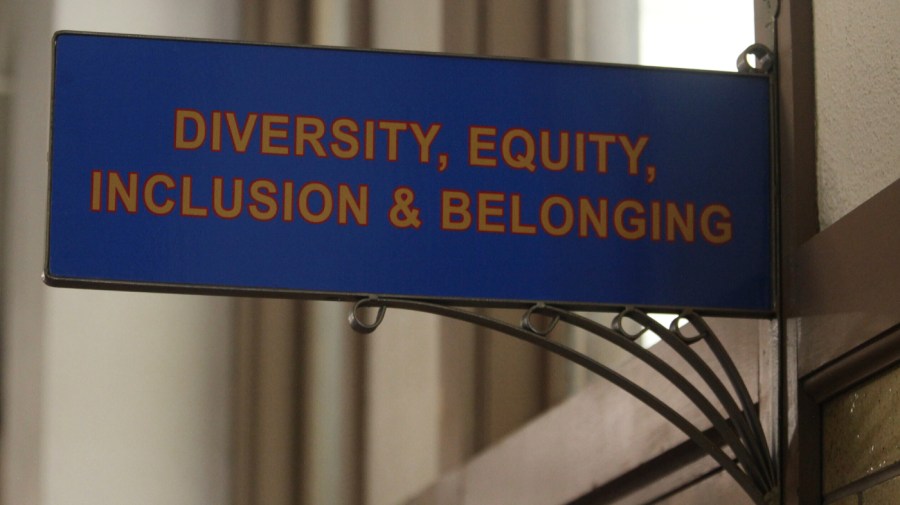Politics
Democrats Urged to Reject Race Essentialism and Equity Concepts

The ongoing debate within the Democratic Party regarding race essentialism and equity has intensified, prompting calls for a reassessment of these concepts. Critics argue that embracing these ideas is not only politically unpopular but fundamentally illiberal, undermining the core principles of a free society.
In recent discussions, several prominent figures have emphasized the potential dangers of race essentialism. This ideology posits that individuals’ identities and experiences are predominantly defined by their race. Critics, including political analysts and social commentators, contend that such a viewpoint can lead to division and discrimination, countering the very essence of equality and liberty that a liberal society strives to uphold.
Examining the Illiberal Nature of Equity
Equity, often framed as a means to achieve fairness and justice, has also come under scrutiny. Opponents assert that the pursuit of equity can result in policies that favor specific groups based on race, potentially marginalizing others. This approach risks perpetuating a cycle of inequality rather than fostering genuine inclusivity.
According to a report published in October 2023 by the National Bureau of Economic Research, policies rooted in equity may inadvertently reinforce racial divides rather than bridge them. The report highlights that focusing on outcomes based solely on race can lead to resentment and conflict among different communities.
Furthermore, some Democrats argue that a commitment to race essentialism and equity could alienate moderate voters. As the party prepares for upcoming elections, maintaining a broad coalition is essential. Emphasizing universal principles of dignity and rights, rather than race-based policies, may resonate more effectively with a diverse electorate.
The Road Ahead for the Democratic Party
The challenge for Democratic leaders lies in navigating this complex landscape. They must balance the desire for social justice with the principles of liberalism that emphasize individual rights and freedoms. A shift away from race essentialism and equity might not only align with these values but also broaden their appeal across various demographics.
Prominent voices within the party, such as former President Barack Obama and current leaders in Congress, have begun to advocate for a reexamination of these ideologies. They assert that fostering dialogue around shared values and collective goals can unite the party and its constituents.
As the Democratic Party grapples with these critical issues, the discourse surrounding race essentialism and equity will likely continue to evolve. Engaging in thoughtful debate and prioritizing inclusivity will be crucial steps in redefining the party’s identity in a rapidly changing political landscape.
In conclusion, the call for Democrats to reject race essentialism and equity reflects a broader desire to return to the foundational principles of a liberal society. Emphasizing individual rights over collective identity may prove essential for the party’s future success and cohesion.
-

 Lifestyle5 months ago
Lifestyle5 months agoLibraries Challenge Rising E-Book Costs Amid Growing Demand
-

 Sports4 months ago
Sports4 months agoTyreek Hill Responds to Tua Tagovailoa’s Comments on Team Dynamics
-

 Sports4 months ago
Sports4 months agoLiverpool Secures Agreement to Sign Young Striker Will Wright
-

 Lifestyle4 months ago
Lifestyle4 months agoSave Your Split Tomatoes: Expert Tips for Gardeners
-

 Lifestyle4 months ago
Lifestyle4 months agoPrincess Beatrice’s Daughter Athena Joins Siblings at London Parade
-

 Science4 months ago
Science4 months agoSan Francisco Hosts Unique Contest to Identify “Performative Males”
-

 World4 months ago
World4 months agoWinter Storms Lash New South Wales with Snow, Flood Risks
-

 Science5 months ago
Science5 months agoTrump Administration Moves to Repeal Key Climate Regulation
-

 Business5 months ago
Business5 months agoSoFi Technologies Shares Slip 2% Following Insider Stock Sale
-

 Science5 months ago
Science5 months agoNew Tool Reveals Link Between Horse Coat Condition and Parasites
-

 Sports5 months ago
Sports5 months agoElon Musk Sculpture Travels From Utah to Yosemite National Park
-

 Science5 months ago
Science5 months agoNew Study Confirms Humans Transported Stonehenge Bluestones









